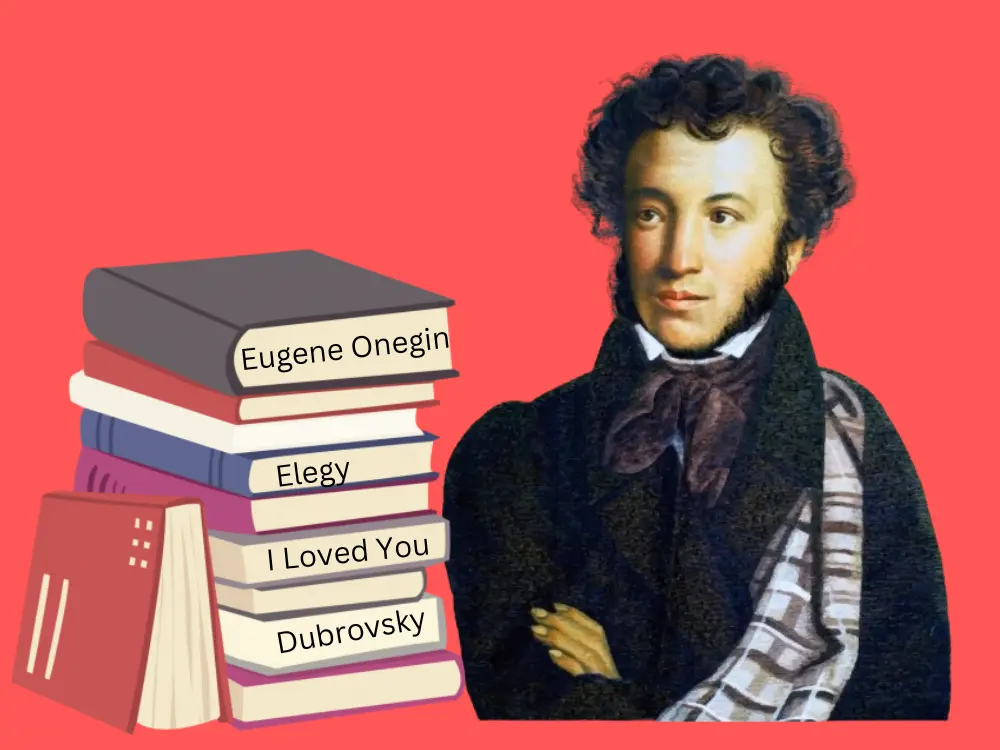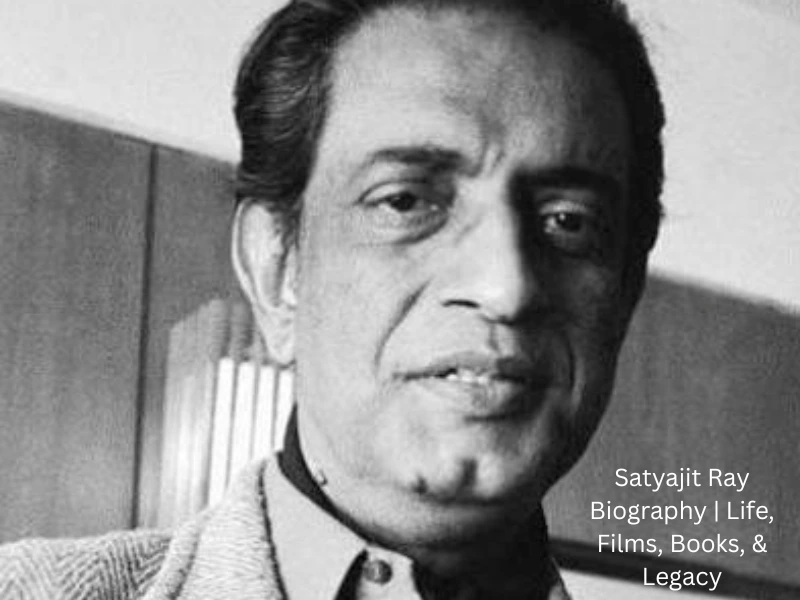Much of the world accepted Alexander Pushkin as the father of Russian literature. Both a poet, novelist, and playwright, Pushkin changed the language landscape of Russia with his style and captured the spirit of his times. His books, Eugene Onegin and The Bronze Horseman, stood out as some monumental works of Russian literature and culture.
Early Life and Family Background
Pushkin was born on June 6, 1799, in Moscow. His family was from the nobility, and his father, Sergei Pushkin, was the son of an aristocratic family from Russian origin, while his mother, Nadezhda Gannibal, who was the granddaughter of an African-born general who had been brought to Russia and made significant notoriety as one of the favorites during Peter the Great’s regime, played a significant role in his writing.
Pushkin’s Education
Schooling at the Imperial Lyceum
At the age of 12, Pushkin was enrolled in the Imperial Lyceum at Tsarskoye Selo, the best boys school in the country, where the attention of young nobility and liberal intellectuals converged. His period in the Lyceum proved to be important in the development of his literary talent; he began writing poetry in his school years.
Early Literary Influences
He was enthralled by the French writers and the local Russian authors who were popular during his lifetime. His inspirations included Voltaire, Byron, and Shakespeare, whose styles and themes were the foundation for his early poetic works.
Pushkin’s Early Poetry
First Published Works
His first poems were published when he was 15. His early works involved mainly liberty, love, and patriotism—the general revolutionary ideas that, at the time, spread throughout all of Europe.
Themes in His Early Poems
Pushkin’s early work was largely concentrated on issues of individual liberty, love, and nature. His “Ode to Liberty” caught public attention with its frank declarations of politics, leading him eventually into a confrontation with the government.
Political Involvement and Exile
Pushkin’s literary works, because of their political aspect, got him involved with movements that spurred the need for reforms in Russia. For writing such poems he was exiled in 1820. He is then led to southern Russia, and it was during this time that he finds time to write some of his greatest works, among which is The Captive of the Caucasus.
Famous Works by Alexander Pushkin
Eugene Onegin
No less famous is the novel in verse Eugene Onegin, started by Pushkin in 1823. Here he tells the story of a disappointed nobleman, for which his readers granted him the title of a classic of Russian literature; here he sings the marriage song, where his voice sinks to the level of lyricism but remains as deep as the level of insight into social comment.
The Bronze Horseman
Another important work is The Bronze Horseman, a long narrative poem that reflects on the relationship between the individual and the state. It is set in St. Petersburg and brings together issues of power and fate on how history influences a personal life.
Also read William Shakespeare Biography
Pushkin and Russian Literature
Pushkin is often glorified as the father of modern Russian literature. His use of the Russian language in a more direct and simple form rather than the rather overlords of French-influence style of his contemporaries helped shape the future of Russian literary expression.
Pushkin’s Plays and Prose
Besides his great poetry, Pushkin also wrote plays and prose. In Russian theater, Boris Godunov would remain one of his greatest accomplishments as a historical drama. Short stories by Pushkin, like The Queen of Spades, marked this writer’s versatility and led to his influence that would last throughout Russian literature.

Alexander Pushkin Poems List
Here is a list of some of the best-known poems by Alexander Pushkin, translated into English:
- “The Bronze Horseman” (1833)
One of Pushkin’s most renowned narrative poems, it chronicles a man in St. Petersburg during the time of a flood and his tragic confrontation with a statue of Peter the Great. - “Ruslan and Ludmila” (1820)
A romantically heroic fairy tale of knight Ruslan’s adventures to rescue his love, Ludmila, from an evil sorcerer. - “The Prisoner” (1822)
This miniature lyrical poem develops the theme of freedom and captivity-a common feature in Pushkin’s poems of early periods. - “The Prophet” (1826)
A spiritual poem with great power, describing the mystical experience of an encounter of the prophet with divine inspiration. - “I Loved You” (1829)
A deeply personal and moving love poem in which the tenderness of Pushkin’s unrealized love is written with poignant passion. - “To the Sea” (1824)
A quintessential goodbye to the muse and to his sea love, this poem blends deep personal feelings with strong reflections. - “The Tale of the Golden Cockerel” (1834)
A satirical verse fairy tale about power and greed, this poem finds its wrap in a magical story. - “Winter Morning” (1829)
A very beautiful and lovely image of a winter morning rich in vivid imagery. - “The Queen of Spades” (1834)
A long gloomy poem about greed, fate, and mystery on a mysterious playing card which inspired the famous Tchaikovsky opera. - “Remembrance” (1830)
A sad and reflective poem where Pushkin dwells on time and death inexorability. - “Elegy” (1830)
A reflective and philosophical poem of loss from the perspective of the poet and the transience of life and happiness. - “The Fountain of Bakhchisarai” (1823)
Lyrical narration of love, beauty, and despair in an oriental fantasy background. - “To…” (1829)
A brief, emotional hymn to an unidentified beloved, steeped in passion and devotion.
These poems highlight Pushkin’s range as a poet, from personal lyricism to grand, sweeping narratives and fairy tales.
5 Novels by Pushkin Need to Read
Here are some of the notable novels by Alexander Pushkin:
- “Eugene Onegin” (1833)
“Eugene Onegin” is a novel in verse by Pushkin and really is one of the main products of Russian literature. The novel unfolds the story of the love of the disappointed aristocrat Eugene Onegin, who threw away passionate Tatyana and then regretted his decision. The novel addresses the issues of love, fate, and change. - “The Captain’s Daughter” (1836)
A historical novel at the Pugachev Rebellion turn, it is the life journey of a young nobleman named Pyotr Grinyov against the backdrop of a rebellion led by Pugachev. It is a novel on love, loyalty, and honor, the odds of which come across beautifully amidst the backdrop of political turbulence. - “Dubrovsky” (1841, posthumously published)
It is an unfinished novel telling the story of a young nobleman named Vladimir Dubrovsky, who resolves to live like Robin Hood by distributing his family’s estate after most of it has been already confiscated by some unscrupulous official. Throughout the story can be traced revenge, social injustice, and romance. - “The Queen of Spades” (1834)
A novella, though often placed in the same category as his other major prose works, this story deals with an officer named Hermann, who becomes enthralled with learning the secret of a card trick that could grant him immense wealth. It is a dark tale of obsession, greed, and fate. - “The Moor of Peter the Great” (unfinished, 1827)
Based upon Abram Petrovich Gannibal’s life, a contemporary African man who just so happens to be taken to Russia and transformed into a great military leader under Peter the Great, this is actually based on Pushkin’s own great-grandfather. As such, this novel will be “according to” the psychological connection with the character.
These works demonstrate Pushkin’s skill as a writer where he joins historical themes, romantic elements, and social criticism with deep psychological insight.
Pushkin’s Return to St. Petersburg
Several years later, Pushkin was granted permission to return to Saint Petersburg in 1826. His return to the capital ushered in a new stage of his career, for he came nearer to the city’s literary circles and indeed found himself continuing to write influential works.
Marriage and Family Life
In 1831, Pushkin married the beautiful Natalia Goncharova, the noblewoman of Russia. He had four children; however, Pushkin’s marriage did not go without rumor and jealousy, especially concerning his wife’s relationships with the Russian court.
Pushkin’s Role in Shaping the Russian Language
He successfully transmogrified the Russian language, making it more expressive and literary. Generations of Russian students studied his works for their mastery of the linguistic and poetic dimension of the Russian language.
Quotes by Alexander Pushkin
“Boldness is the beginning of action, but fortune controls how it ends.”
“I loved you; even now I may confess,
Some embers of my love their fire retain;
But do not let it cause you more distress—
I do not want to sadden you again.”
– From the poem “I Loved You”
“A deception that elevates us is dearer than a host of low truths.”
“Every condition, every age has its own rights; every soul its own desires.”
“The illusion which exalts us is dearer to us than ten thousand truths.”
Duel and Death of Pushkin
It is even reported that Pushkin met his death in a duel in 1837 by Georges d’Anthès, a French officer rumored to be carrying on an affair with Pushkin’s wife. He died on February 10, 1837, but his influence continues as a masterpiece in Russian literature.
Awards and Recognition
Although Pushkin’s work was not officially acknowledged with rewards during his lifetime, today he is considered one of the greatest figures in world literature. His name adorns statues, schools, and streets everywhere around Russia and many other countries.
Pushkin’s Legacy in Russian Literature
Indeed, Pushkin’s influence cannot be exaggerated. He is the man who gave Russians their “Sun of Russian Poetry“. It has been reported that some of the world’s great writers, like Fyodor Dostoevsky, Leo Tolstoy, and Anton Chekhov drew inspiration from his literary materials. That is why people all over the world look at Pushkin’s mastery in expressing human emotions and his linguistic innovation as an inspiration.
Conclusion: The Influence of Alexander Pushkin
It was indeed Alexander Pushkin, this great Russian writer, whose works left on the canvas of Russian culture and literature an indelible mark, changing the face of writing within Russia and facilitating further development of the Russian language. So, Pushkin’s literary genius turns out to be sustainable till this day, and works thus created find applause worldwide for their artistic excellence.
FAQs
What was Alexander Pushkin famous for?
Now he has become world-known not only because of his contribution to the Russian language and culture but mainly because of such masterpieces as novels, plays, and most of all, his novel in verse, “Eugene Onegin.”. All Pushkin’s works unite traditions of romanticism and realistic understanding with very profound human psychology.
What was Alexander Pushkin’s masterpiece?
Eugene Onegin,” the magnum opus by Alexander Pushkin, written as a novel in verse, is an epochal novel and one of the most trenchant works touching romance, social commentary, and insight into human nature, an extremely important and influential piece of Russian literature.
Who is the national poet of Russia?
Alexander Pushkin was considered the national poet of Russia. He is the founder of modern Russian literature and is regarded as a great figure in Russian culture.
Which Russian author died in a duel?
Alexander Pushkin died from being shot in a duel in 1837. Pushkin was killed in the duel with Georges d’Anthès, a French officer, over the question of his honor against his wife’s honour.




Hmm is anyone else having problems with the pictures on this blog loading? I’m trying to figure out if its a problem on my end or if it’s the blog. Any feedback would be greatly appreciated.
Hello. splendid job. I did not imagine this. This is a impressive story. Thanks!
Some genuinely nice and utilitarian info on this website , also I believe the design and style holds great features.